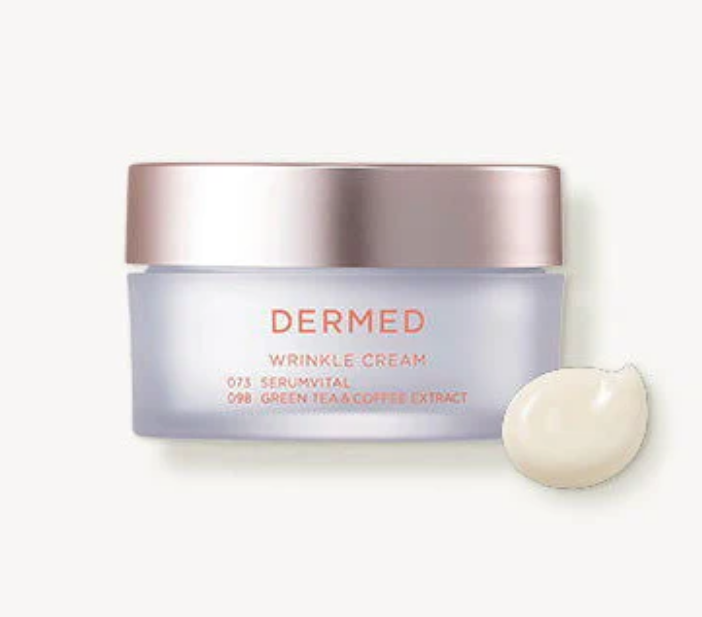Notifications
5 minutes, 50 seconds
-11 Views 0 Comments 0 Likes 0 Reviews

Aging is a natural part of life, but that doesn’t mean we have to accept fine lines and wrinkles without a fight. Anti-aging cream and anti-wrinkle cream have become staples in skincare routines across the world, promising youthful, glowing skin. But do they really work? Let’s dive into the truth behind these popular products and how to choose one that actually delivers results.
Why Do Wrinkles Form in the First Place?
Before we get into how anti-aging and anti-wrinkle creams work, it’s important to understand why wrinkles happen. As we age, our skin naturally loses collagen and elastin—two proteins that keep it firm and smooth. Sun exposure, pollution, stress, and lifestyle habits like smoking or poor diet can speed up this process, leading to fine lines, sagging, and deeper wrinkles.
How Anti-Aging Creams Work
Anti-aging creams are specially formulated to target signs of aging such as wrinkles, dullness, dryness, and uneven skin tone. They typically include active ingredients that promote cell regeneration, improve moisture retention, and protect against further damage.
The most effective anti-aging creams work by:
Boosting Collagen Production: Ingredients like retinoids or peptides help stimulate collagen, making skin firmer.
Hydrating the Skin: Moisturizers like hyaluronic acid plump the skin and reduce the appearance of fine lines.
Fighting Free Radicals: Antioxidants such as vitamins C and E protect skin cells from damage caused by pollution and UV rays.
Exfoliating Dead Skin Cells: Gentle exfoliants improve skin texture and allow deeper penetration of other ingredients.
Key Ingredients to Look For in an Anti-Wrinkle Cream
Not all anti-wrinkle creams are created equal. When shopping for one, keep an eye out for these powerhouse ingredients:
Retinol (Vitamin A derivative): Clinically proven to reduce fine lines and improve skin texture.
Hyaluronic Acid: A hydrating agent that can hold up to 1,000 times its weight in water, making your skin look plumper.
Peptides: These help signal the skin to produce more collagen.
Vitamin C: A strong antioxidant that brightens the skin and reduces dark spots.
Niacinamide (Vitamin B3): Helps improve elasticity and strengthen the skin barrier.
Always choose a cream that matches your skin type (dry, oily, combination, or sensitive) for the best results.
Debunking Common Myths About Anti-Aging and Anti-Wrinkle Creams
Myth #1: You don’t need anti-aging products until you’re older.
Truth: It’s never too early to start preventive care. Many dermatologists recommend beginning an anti-aging routine in your mid-20s to early 30s.
Myth #2: Expensive creams are always better.
Truth: A higher price doesn’t always mean higher quality. What matters most are the ingredients and how they’re formulated.
Myth #3: Results are instant.
Truth: Most anti-aging and anti-wrinkle creams take several weeks to show visible changes. Consistency is key.
Myth #4: Natural products are always safer.
Truth: While natural ingredients can be effective, not all are scientifically proven or allergy-safe. It's important to read labels and do a patch test.
How to Use Anti-Aging Cream for Best Results
To get the most out of your anti-aging or anti-wrinkle cream, follow these simple tips:
Cleanse First: Always apply cream to clean, dry skin.
Use a Pea-Sized Amount: A little goes a long way.
Apply Gently: Use upward motions to avoid pulling the skin.
Stick to a Routine: Apply the cream consistently—once or twice a day, depending on the product’s directions.
Protect Your Skin: Use sunscreen during the day to prevent sun damage, which can counteract your cream’s effects.
Final Thoughts
While no cream can stop the aging process entirely, a well-formulated anti-aging cream or anti-wrinkle cream can definitely slow it down and help your skin look its best. By understanding how these products work, knowing what ingredients to look for, and separating myth from fact, you can make confident choices for healthier, younger-looking skin.
Remember: beauty isn't about turning back the clock—it’s about feeling comfortable and confident in your own skin.

